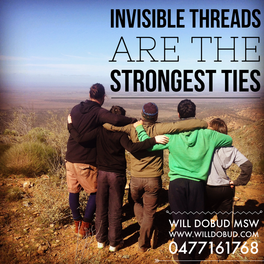 Many parents that enquire about True North Expeditions and our 14-day expeditions wonder how to encourage their child to attend the program when they may be disengaged from school, substance abusing with peers, or disrespectful at home. Firstly, it is worth noting that teenagers are notoriously hard at getting to engage in therapeutic services and worst, nearly 70% of them drop out prematurely. For the parents interested in True North, we have found that most have tried previous therapeutic services from school counsellors to medication to clinical psychologists. Feeling as though they have reached the end of their rope, they are reaching out for an alternative. This is where adventure therapy programs, like ours, have been useful. Because we know that drop out is such a concern we take a different approach from the start of our program. From day one our team is inviting, caring, compassionate, and understanding while being interested in only one thing: How can we be the most helpful? When preparing a family for an expedition we complete a detailed assessment gathering information from parents, schools, previous psychologists or counsellors, and anyone who has been involved in this child’s wellbeing. From the time the teenager arrives for a program, the focus shifts to the work that can be accomplished with this child and our team. The adolescents we see are not embodiments of depression or described using any of The Killer D’s: Diagnosis, Deficit, Disability, Disorder or Deficiency. Instead, we work with our adolescent clients based on what the research has to say is most effective. When looking at what works in therapeutic services there is one thing that stands out more than any other aspect. The quality of participation in therapy is a stand-alone factor for predicting outcomes. If the goal is participation and collaboration then start of youth programs should not be punitive, un-engaging, or prescriptive. It is about providing a service that teens feel is meaningful and beneficial to their lives. This occurs when the service matches the concerns deemed most important by the adolescent while acknowledging their feedback about what is working and what isn’t. The idea for this blog emerged this week after I received 3 phone calls from previous True Northers (our code name for participants). Three adolescent girls aged 15, 17, and 18 rang asking about when the next program was they could take part in. The youngest said that she had been struggling recently and was hoping for a refresher to help her stay on track. The 17 year old, just about to finish Year 12, had hopes of coming on an expedition after she graduates to share her story with first time students. The main goal of True North Expeditions was to provide a service that teens care about. This is what we wanted. By caring the most about the people consuming our services we aim to ensure that everything we do acknowledges their feedback about what works. From the food to campsites to journal topics to team activities, everything is done with their feedback on the front line. Without it, therapists are guessing what should work best. All the information we need is in front of us. It is not in an assessment or science journal. Those may be the car that gets us to our desired outcome but without collaboration, participation, and feedback there is no petrol or driver. When things are not working, we go back to the client and openly ask what changes should be made in approach. Not only does this have the potential to fix a rupture in progress but also invites adolescents to take ownership of their therapeutic experience. As I am currently in writing mode for my doctoral research I have been coming across incredible research about how services that incorporate feedback can triple their effectiveness and reduce drop out rates. I have also seen that youth programs tend to have two different philosophies in approaching youth services: One that privileges a client’s voice and one that mistrusts it. The problem is that by mistrusting it, we miss the strengths, values, and the skills each person has that are the most helpful in solving problems. See you on the trail... Will Dobud MSW [email protected] www.willdobud.com www.truenorthexpeditions.com.au 0477161768
2 Comments
|
Contact WillE: [email protected] Archives
September 2019
Categories |
 RSS Feed
RSS Feed
